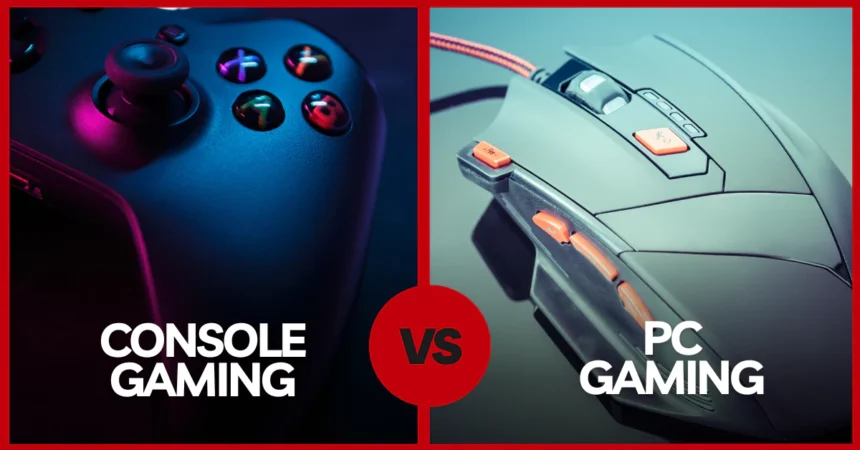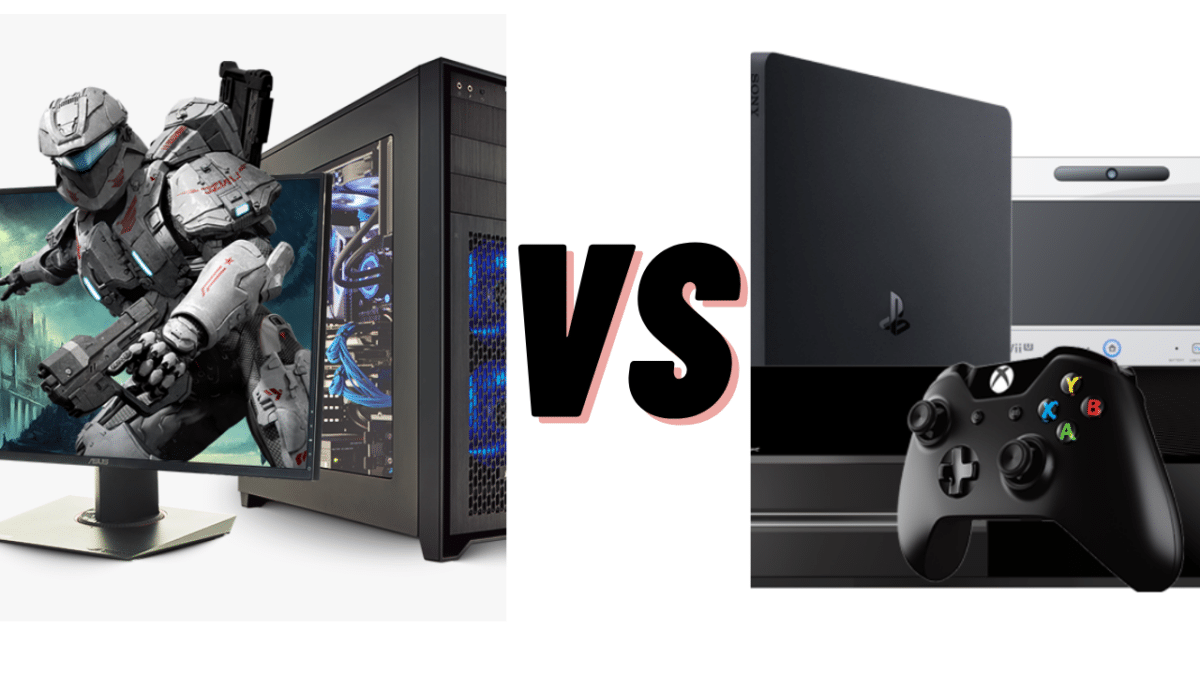

Console Gaming vs. PC Gaming: The 2025 Landscape
The debate between console gaming and PC gaming is as old as gaming itself. For decades, players have argued over which platform offers the superior experience. Each side champions its strengths: consoles boast simplicity and exclusive titles, while PCs tout power, versatility, and a vast library. As we look ahead to 2025, this perennial rivalry continues, shaped by technological advancements, evolving business models, and changing player habits. While the fundamental differences remain, the lines are becoming increasingly blurred. So, in the landscape of 2025, which platform holds the edge, and more importantly, which is right for you?
By 2025, the PlayStation 5 and Xbox Series X/S will be well into their lifecycle, approaching the mid-point before the inevitable next generation begins to loom. This means their hardware capabilities are fully understood and optimized by developers. We’ll see games pushing the current consoles to their limits, delivering stunning visuals and performance previously only achievable on high-end PCs.
Consoles in 2025 will continue to excel in their traditional strengths. They offer a simple, plug-and-play experience. You buy the box, connect it to your TV, and you’re gaming within minutes. This ease of use remains a major draw for many, eliminating the complexities of hardware compatibility, driver updates, and configuration settings that can sometimes plague PC gaming. The standardized hardware also ensures that developers can optimize games specifically for these machines, often resulting in a smoother, more consistent experience across all players on that platform, regardless of minor model variations (like the Series S vs. X).
The living room experience is another console cornerstone. Designed for comfortable couch gaming on a large screen, consoles facilitate social gaming sessions, whether local co-op or simply sharing the experience with family and friends. The integration with media apps also makes them central entertainment hubs.
Subscription services like Xbox Game Pass and PlayStation Plus will be even more central to the console experience in 2025. Game Pass, in particular, continues to offer incredible value, providing access to a vast library of games, including first-party titles on day one. This model significantly lowers the cost of entry into playing a wide variety of games, making consoles a very attractive proposition for budget-conscious gamers who want breadth over owning individual titles. PlayStation Plus, while slightly different in its offerings (primarily online play and monthly free games), also contributes significantly to the value proposition.
However, the traditional console advantage of exclusive titles is changing. While Sony and Nintendo still rely heavily on their first-party studios to drive hardware sales, Microsoft’s strategy has shifted towards a platform-agnostic approach, bringing most of their major releases to PC simultaneously via Game Pass. Sony has also begun porting many of its previously PlayStation-exclusive hits to PC after a timed exclusivity period. By 2025, expect this trend to continue, with fewer permanent console exclusives, particularly outside of Nintendo’s ecosystem.
Now, let’s turn to the PC gaming landscape in 2025. The PC remains the king of raw power and flexibility. By 2025, we will likely have seen new generations of graphics cards and processors from NVIDIA, AMD, and Intel, pushing performance benchmarks even higher. This means PC players with top-tier hardware will continue to experience games at the highest possible resolutions, frame rates, and graphical fidelity – often exceeding what the current generation of consoles can achieve. Features like advanced ray tracing, higher texture details, and support for ultra-wide or multi-monitor setups are where the PC truly shines.
Customization is another core PC strength. Players can build or buy systems tailored precisely to their needs and budget, upgrading individual components over time. This modularity offers longevity, allowing gamers to stay relatively current without buying an entirely new system every few years. The PC is also a multi-purpose machine; it’s not just for gaming but also for work, content creation, browsing, and more, adding significant value for many users.

The game library on PC is unparalleled. It includes virtually every major multi-platform release, a massive back catalog spanning decades, and a thriving indie scene that often launches on PC first. Digital storefronts like Steam, Epic Games Store, GOG, and others offer competitive pricing, frequent sales, and often DRM-free options. Modding communities add incredible replayability and customization to many titles, something generally not possible on consoles.
Furthermore, PC gaming offers a wider range of input options (keyboard and mouse for precision, controllers for comfort) and supports a vast array of peripherals, including high-refresh-rate monitors essential for competitive gaming, and evolving technologies like VR and AR, which are much more established and capable on PC than on consoles.
However, the PC gaming experience comes with its own set of challenges. The initial cost can be significantly higher, especially for a high-end rig capable of outperforming the latest consoles. The complexity of hardware and software can lead to troubleshooting issues, and the need for regular driver updates and system maintenance is a reality. While digital storefronts offer sales, the cost of individual new releases is often the same or higher than on consoles, unless you factor in subscription services like PC Game Pass or deals from various launchers.
Looking at the key battlegrounds in 2025:

-
- Performance vs. Value: High-end PCs will still offer the peak performance, but consoles will provide exceptional performance for the price. The gap in visual fidelity will be noticeable at the absolute highest settings, but less so on standard setups or for players prioritizing consistent frame rates at common resolutions like 1440p or 4K (with compromises).
- Exclusives & Libraries: The distinction is blurring. While console-makers still have their flagship franchises, the trend of bringing games to PC means the PC library is increasingly encompassing console hits, in addition to its inherent vastness. Game Pass on both platforms further levels the playing field for many titles.
- Ease of Use vs. Flexibility: Consoles remain the champions of simplicity and convenience. PCs offer unparalleled flexibility, customization, and versatility, but demand more technical involvement from the user.
- Subscription Services: These services are a major factor in 2025, offering significant value on both platforms and influencing how players access and consume games. Xbox Game Pass, in particular, continues to bridge the gap by being available on both PC and Xbox.
- Cloud Gaming: While still maturing, cloud gaming services like Xbox Cloud Gaming, GeForce NOW, and PlayStation Plus Premium streaming will gain more traction by 2025. These services have the potential to further blur the lines, allowing players to access high-fidelity games on less powerful hardware (including non-gaming PCs, phones, or even smart TVs), potentially reducing the dependency on owning expensive dedicated gaming hardware.

Ultimately, the choice between console and PC in 2025 remains a personal one, dictated by individual priorities, budget, and desired experience.
The console is likely the better choice for:
- Gamers prioritizing ease of use, simplicity, and a standardized experience.
- Those primarily gaming in a living room setup on a TV.
- Players seeking the best value proposition through subscription services like Game Pass or PS Plus for a wide library.
- Fans of specific console-exclusive franchises (though this is less of a factor for Xbox by 2025).
- Budget-conscious buyers looking for a lower initial hardware cost.
The PC is likely the better choice for:
- Gamers who demand the highest possible performance, graphical fidelity, and frame rates.
- Those who value customization, upgradeability, and versatility from their machine.
- Players who want access to the widest possible game library, including older titles, indies, and mods.
- Competitive gamers who benefit from high refresh rates and precise input methods.
- Users who need a powerful computer for tasks beyond gaming.
In 2025, neither platform is definitively “better” than the other across the board. Consoles offer a streamlined, value-driven, and social living room experience. PCs offer maximum performance, flexibility, and library depth for those willing to invest more time and money. The growing availability of cross-platform play and the increasing presence of major titles on services like Game Pass mean that gamers have more options than ever, regardless of their chosen hardware. The debate will continue, but the focus in 2025 shifts less to which platform can play a game, and more to how you want to play it, and what ecosystem best suits your needs and budget. The good news is, for gamers, having two vibrant, competing ecosystems pushing each other forward ensures a healthy and exciting future for the industry.







